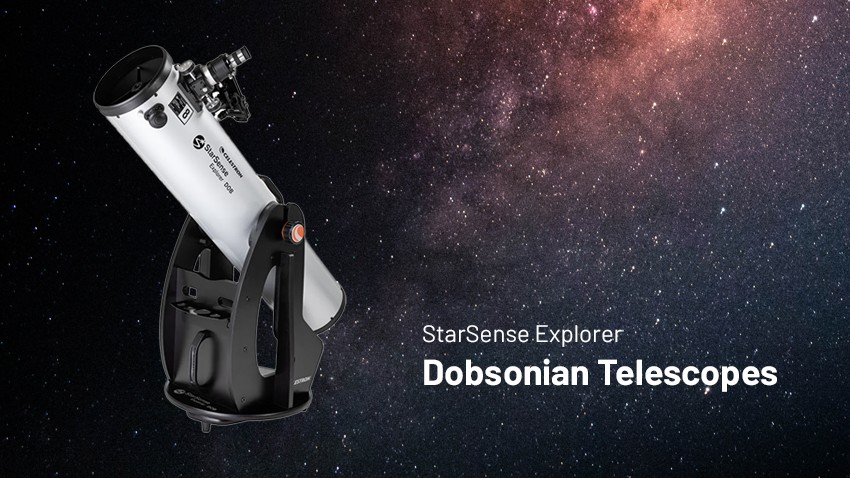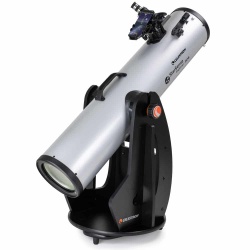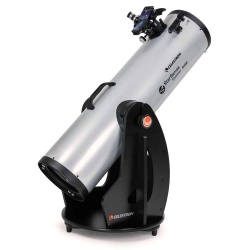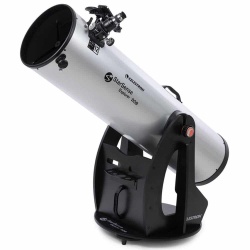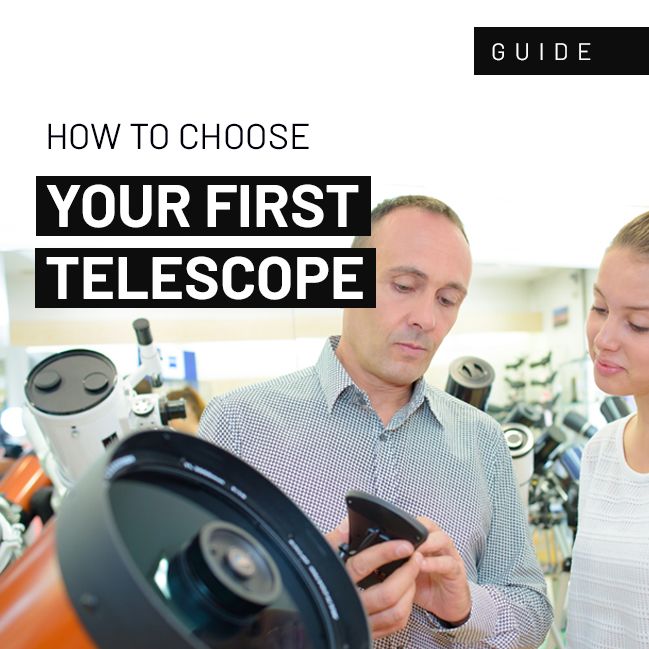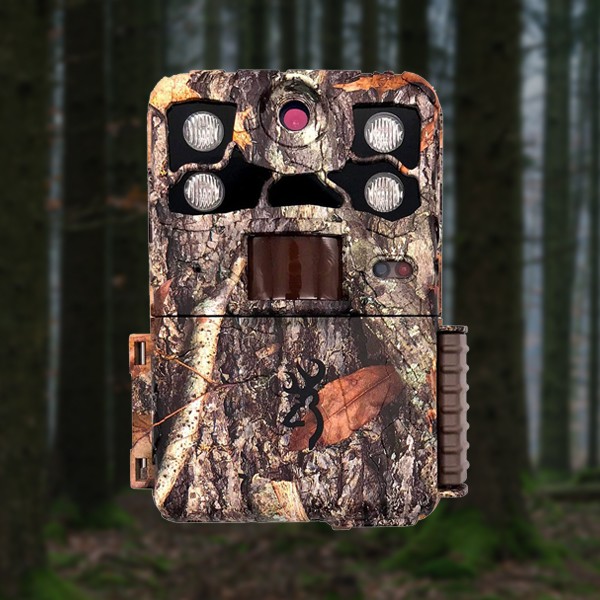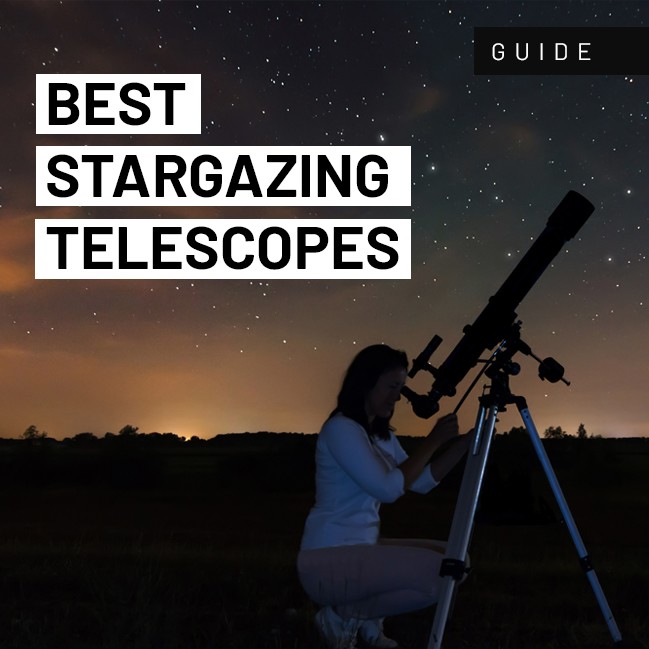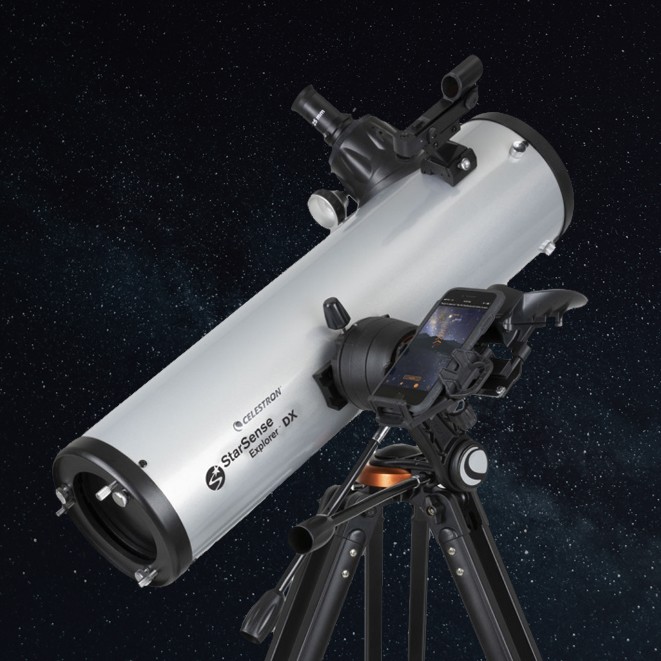Reviewed: Celestron StarSense Explorer Dobsonian telescopes21 December 2023 | Admin
Celestron has had a lot of praise for its StarSense Explorer telescopes. The first type of manual telescope to align to the night sky using an app on a smartphone to analyse the night sky, Celestron StarSense Explorer telescopes make things much easier for beginners and help experienced amateurs waste less time setting up. However, a common misconception among owners of all modern optical devices – including telescopes and cameras – is to obsess over apps and pixels over more fundamental fixed features. A telescope’s aperture will always be critical in determining what you can observe – and that's where Dobsonian telescopes are peerless. Aperture is expressed in millimetres and inches, which refers to the mirror's diameter or the lens the telescope uses to collect light. If you want to see faint objects such as galaxies, nebulae, open clusters and globular clusters at their best, then you need a telescope with as large an aperture as possible. In Celestron’s StarSense Explorer range, that means going for one of its three Dobsonian products - the Celestron StarSense Explorer 8-inch Dobsonian telescope, the Celestron StarSense Explorer 10-inch Dobsonian telescope, or the Celestron StarSense Explorer 12-inch Dobsonian telescope:
The Celestron StarSense Explorer 8-inch and 10-inch Dobsonians originally went on sale in April 2022, while the 12-inch version became available in mid-2023. All come with a 25mm Celestron Omni Plossl eyepiece capable of 48x magnification and an eyepiece rack in the base. What is a Dobsonian telescope?A Dobsonian telescope is a standard Newtonian reflector telescope, initially invented in the 17th century by Sir Isaac Newton. They use two mirrors, with light collected by one reflecting onto another and brought into focus in an eyepiece. NASA’s James Webb Space Telescope (JWST) is based on a similar design, but what gives these three telescopes the ‘Dobsonian’ name the canon-style altazimuth mount they sit on. It’s a simple design that goes up and down and, thanks to a rotating mount, takes a telescope through 360 degrees (though it’s impossible to point them directly at the zenith above). 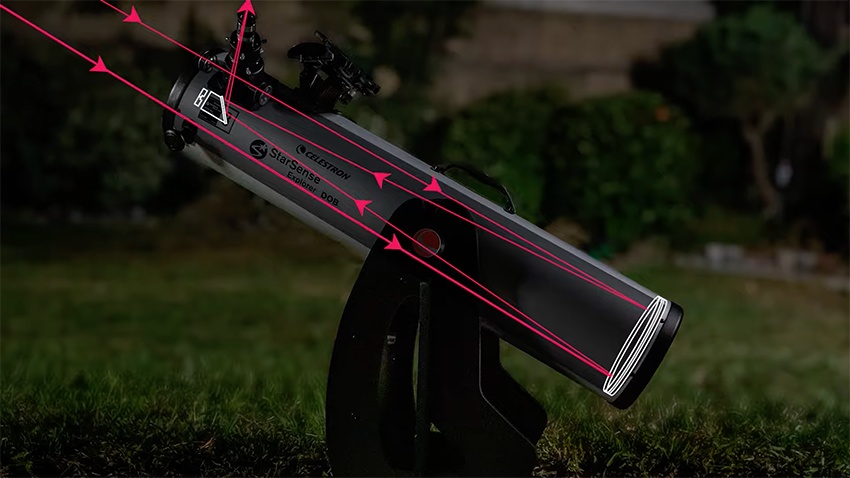 What's so good about Dobsonian telescopes?Completely point-and-shoot, Dobsonian telescopes are typically large, very easy to use and relatively inexpensive for the huge apertures they achieve. Nicknamed ‘light buckets,’ Dobsonians excel at showing deep-sky objects at high magnification. The only tricky thing about owning a Dobsonian, aside from its relatively large size, is knowing where to point it in the night sky. Cue Celestron’s StarSense Explorer technology, which makes ‘faint fuzzies’ such as distance star clusters and galaxies so easy to find. After all, if you have a smartphone app that helps you point a telescope at something impossibly faint in the night sky, you might as well have the resolution to see it in all its glory. GoTo vs. PushTo telescopesDon’t confuse StarSense Explorer technology with ‘GoTo’ telescopes. A Dobsonian is entirely manual and never an automated, motorized experience; with the StarSense Explorer app’s clever directional arrows and bullseye graphics helping with manual positioning, it’s essentially a ‘PushTo’ experience. Using a Dobsonian telescopeWhat puts off a lot of people from buying a Dobsonian is their physical size. They’re not too cumbersome, but their large apertures can make them tricky to store. However, all three in Celestron’s StarSense Explorer range can be stored with their tubes facing up, which makes them easier to keep in the corner of a room. They all have handles on both the base and the telescope tube, though they’re best stored close to where they will be used. Their simple mount makes them surprisingly easy to manipulate. Celestron StarSense Explorer Dobsonian telescopes: verdictEffortlessly user-friendly and capable of outstanding views of celestial objects typically beyond the reach of entry-level telescopes, the Celestron StarSense Explorer Dobsonian telescopes are enjoyable, great value and at the apex of Celestron’s StarSense Explorer range of telescopes.
|
